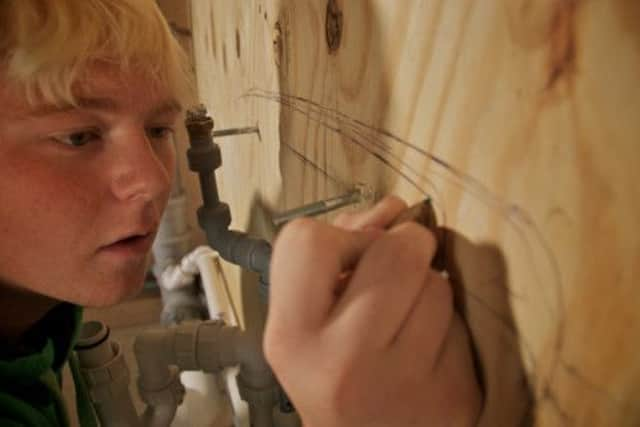Drawing on business to benefit society


But what exactly do we mean by “social enterprise”? A lot of people seem to have a vague understanding of what it is and does. In Scotland we have a robust definition. In a sentence it is: “A dynamic and inspiring way of doing business. Social enterprises are innovative, independent businesses that exist specifically for social and/or environmental purposes.”
Social enterprises do business in all markets and exist to make a profit like any private sector company. However, profits or surpluses are always reinvested into their social and environmental purpose – profit can be seen as a better way of fundraising. Social enterprises have an “asset lock” on all their assets. These businesses shouldn’t be confused with private sector companies that operate ethically, charities that are not enterprising or public sector arms-length companies.
Advertisement
Hide AdAdvertisement
Hide AdThe range of social enterprise models includes co-operatives and mutuals, social firms, community interest companies (CICs), development trusts, credit unions and housing associations. Practical examples are the Big Issue, the Wise Group, Kibble, Glasgow Housing Association, Isle of Eigg Heritage Trust, Link Group Ltd, the Eden Project in Cornwall, Capital Credit Union, the Grameen Foundation, Mondragon in the Basque country and the Homeless World Cup. Other examples include McSence – which provides professional services and, through its Get ready for Work Programme, prepares 16-18 year olds to take up apprenticeships – and Loch Arthur, a working community of 70 in south-west Scotland that includes men and women with learning disabilities.
Leading the way
What many people don’t know is that Scotland is leading the way in social enterprise. Social Enterprise Scotland regularly meets with visiting international guests, including Korea, New Zealand, Sweden, Estonia, Australia and China.
People come here to learn about social enterprise and how Scottish social entrepreneurs are innovating and changing lives. Much of the debate and networking takes place at Scotland’s big Social Enterprise Exchange event (formerly S2S), which we organise each year.
Social enterprise is not a panacea for all of our social and economic challenges – but it’s a vital piece of the jigsaw. We deploy the innovation, efficiency and entrepreneurial spirit of the private sector, we take the charitable objectives and mindset of the traditional voluntary sector and we practice the public service ethos of the public sector. By combining these positive and practical ways of doing good business we ensure a strong, sustainable and dynamic way of delivering goods and services for everyone.
Public policy debate at local, Scottish, UK and European levels is increasingly focused on social enterprise.
Government In Scotland, we have a supportive government and strong cross-party support in the Scottish Parliament. We also have many good local authorities that are engaging social enterprise, including a number becoming associate members of our organisation. All the political parties understand and support social enterprise and the jobs, regeneration and social benefits it brings to our communities.
The social enterprise community doesn’t focus on problems or barriers – we see opportunities to do things in a different way and to improve our society and economy. We like change. We fully recognise the direct effects on the most vulnerable people that are being thrown up by welfare reform, public sector cuts and wider economic issues – but we’re just getting on with the solutions by doing good business. The broad mix of social enterprises, from community-owned services, to employee-ownership, in housing, job creation and financial inclusion, are without doubt part of the solution.
One of our biggest challenges now is to raise public awareness of what social enterprise is and does in most communities across Scotland. We need a brand that is as well known as Fairtrade in the public mind and we need individuals to choose quality goods and services that have a positive impact on people and planet. Recent social enterprise research in Glasgow was a great addition to our awareness of the scale and scope of social enterprise in the city and we now need that to be replicated across Scotland.
Impact
Advertisement
Hide AdAdvertisement
Hide AdWe need people to understand the impact we make (as well as our potential) in jobs, reaching the most excluded and boosting local economies. Social enterprises work in every corner of Scotland, from housing, to community banking, sports centres, social care, catering, employability, the arts, transport and many other areas. We’re a social enterprise nation. We need people in all sectors, as well as individual consumers, to pro-actively get on board – so that social enterprise can benefit every one of us.
• Duncan Thorp is policy and communications officer of Social Enterprise Scotland
duncan.thorp@socialenterprise scotland.org.uk